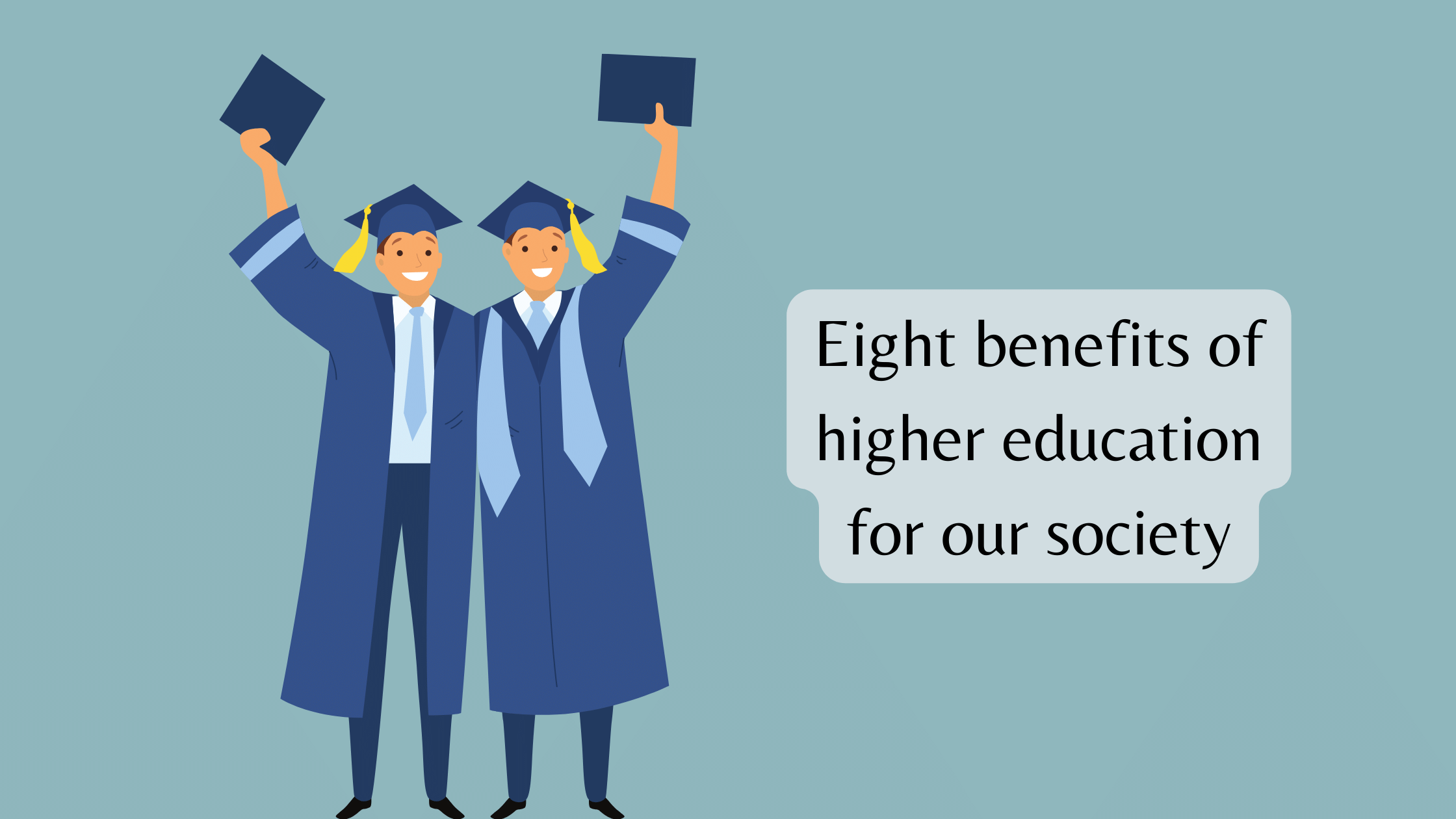
When we think about higher education, we often focus on the personal advantages it brings, such as better job prospects, higher earnings, and the opportunity to explore one’s passions. However, the impact of higher education extends far beyond the individual. It plays a significant role in benefiting our society in numerous ways, fostering a culture of innovation, civic participation, and social awareness. This article explores eight key benefits that higher education contributes to our society, illustrating how it shapes a more informed, prosperous, and cohesive community.
Economic Growth and Innovation
The engine of economic growth thrives on the fuel of education. Higher education, in particular, is instrumental in driving innovation, which in turn propels the economy forward. Graduates equipped with advanced degrees enter the workforce, ready to innovate, solve complex problems, and spearhead new industries. This not only creates job opportunities but also ensures that society remains on the cutting edge of technology and scientific discovery. For instance, the tech boom of the late 20th and early 21st centuries can be directly attributed to an educated workforce that harnessed computer science and engineering to revolutionize how we live and work. This cycle of learning, innovating, and applying directly contributes to societal wealth, highlighting the undeniable link between higher education and economic advancement.
Specialized Knowledge for Societal Benefit
Higher education offers pathways to specialized knowledge that directly benefits society. Take, for example, the Bachelor of Arts in Criminology. This discipline is not just an academic pursuit but a societal necessity. It equips individuals with the understanding and skills to address crime and justice issues effectively, fostering safer communities. Through rigorous study, criminology graduates are prepared to contribute to public safety strategies, justice reform, and community programs that aim to reduce crime and rehabilitate offenders.
Increased Civic Engagement
An educated society is the backbone of a thriving democracy. Higher education plays a pivotal role in fostering civic engagement and encouraging graduates to participate in democratic processes, from voting to volunteering within their communities. This engagement is not merely a byproduct of education but a fundamental aspect of it. Educated individuals are more likely to have the confidence and knowledge to engage in public discourse, advocate for change, and contribute to the decision-making processes that affect their lives and those of their communities. By fostering a sense of responsibility and empowerment, higher education ensures that civic participation is both informed and meaningful, contributing to the overall health and vibrancy of society.
Healthier Lifestyles and Longer Life Expectancy
The ripple effects of higher education extend into the health and well-being of society. Educated individuals tend to lead healthier lifestyles, informed by their knowledge and understanding of health risks and prevention strategies. This translates into lower rates of lifestyle-related diseases, such as obesity, heart disease, and type 2 diabetes, contributing to a healthier population. Moreover, the link between education and longevity is well-documented, with higher education correlating with longer life expectancy. This is not only a testament to the personal benefits of education but also to its societal advantages, as a healthier population is more productive and less burdened by healthcare costs.
Cultural Awareness and Diversity
Higher education institutions promote cultural exchange and diversity. They offer students a unique opportunity to immerse themselves in different perspectives and backgrounds. This exposure is invaluable, fostering cultural sensitivity and appreciation that students carry with them into the wider world. In an increasingly globalized society, the ability to understand and respect diverse cultures is not just a personal asset but a societal necessity. It encourages dialogue, reduces prejudice, and promotes a more inclusive community where differences are celebrated rather than feared.
Environmental Awareness and Sustainability
The battle against climate change and environmental degradation is one of the most pressing challenges of our time. Higher education plays a crucial role in equipping the next generation with the knowledge and tools to tackle these issues head-on. Through specialized programs and research initiatives, students learn about sustainable practices and the importance of conserving our planet’s resources. This education is critical in raising a generation of environmentally conscious individuals who are committed to implementing sustainable solutions in their personal and professional lives.
Reduced Crime Rates
The correlation between education and reduced crime rates is well-documented, offering a clear example of how higher education benefits society at large. By providing individuals with access to opportunities and a sense of hope for the future, education acts as a powerful deterrent against criminal activity. Educated individuals are more likely to find meaningful employment and less likely to turn to crime as a means of survival. This not only improves the quality of life for individuals but also contributes to safer, more secure communities.
Stronger Economy Through Higher Employment Rates
The relationship between higher education and employment is significant, with educated individuals enjoying higher employment rates and better job security. This stability is crucial for a strong economy, as it leads to increased consumer spending, higher tax revenues, and less dependence on social welfare programs. Furthermore, an educated workforce is more adaptable as it is capable of navigating the challenges of a rapidly changing job market. This adaptability ensures that society can better withstand economic downturns and continue to thrive, underscoring the importance of higher education in economic resilience and growth.
Conclusion
The benefits of higher education for society are vast and varied, touching every aspect of our lives. As we reflect on these benefits, it becomes clear that investing in higher education is not merely a personal decision but a societal imperative. By nurturing educated, informed, and adaptable citizens, we lay the groundwork for a more prosperous, equitable, and sustainable future for all.